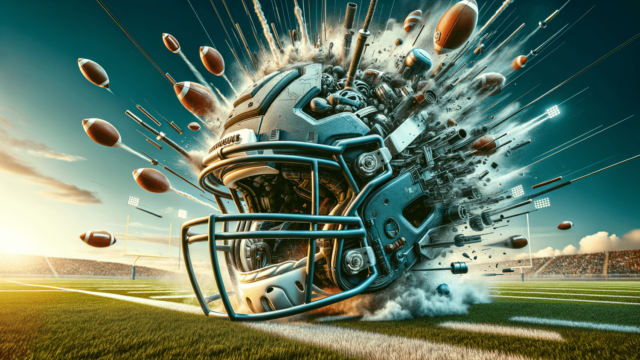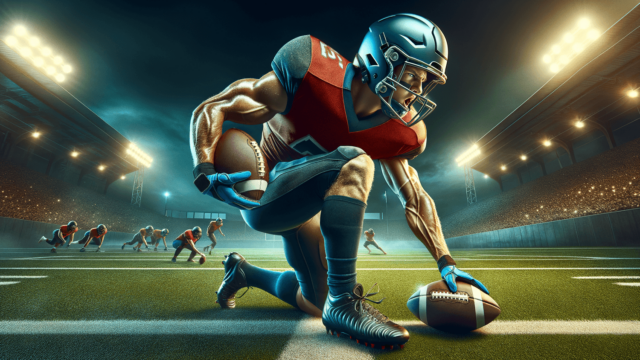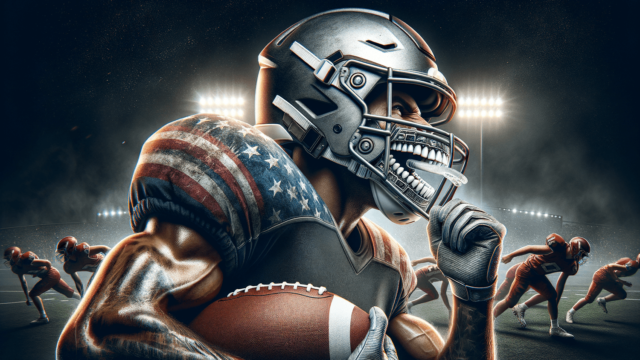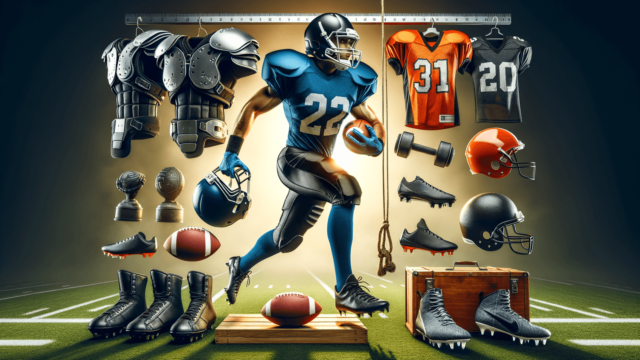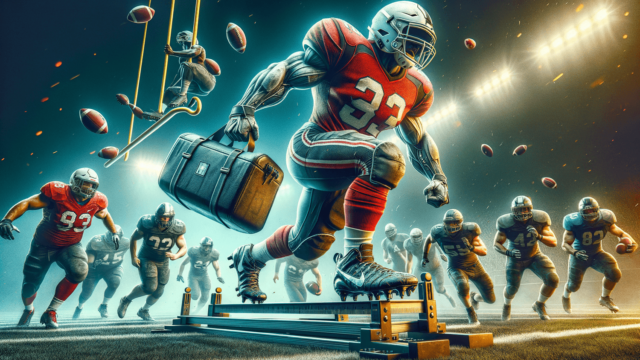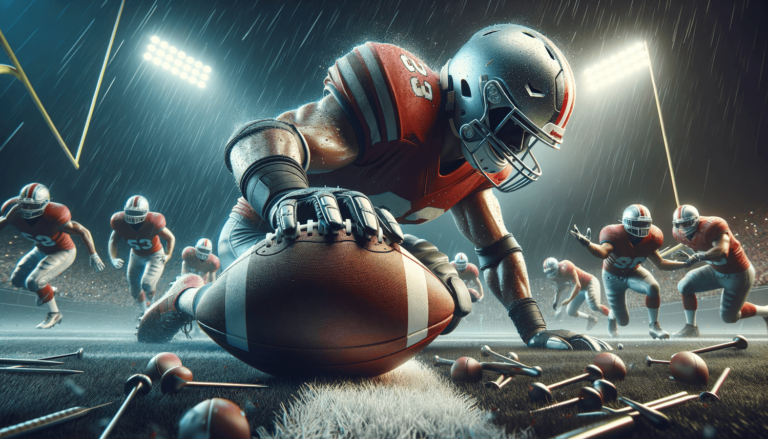
Football helmets typically weigh between 4 to 6 pounds (1.8 to 2.7 kg), with the weight varying depending on the helmet’s size, model, and additional protective features.
Understanding Football Helmet Weight
Football helmets are essential safety equipment worn by players to protect their heads from impacts during games and practices. The weight of a football helmet can have a significant effect on a player’s performance and comfort on the field.
Factors Influencing Helmet Weight
There are several factors that influence the weight of a football helmet, including size, model, and additional protective features.
1. Size
Larger helmets designed for bigger head sizes tend to be heavier than smaller helmets. This is due to the increased amount of materials used to construct and pad the helmet.
2. Model
Different helmet models have varying weights based on their design, materials, and manufacturing process. More advanced helmets with enhanced safety features or technology may weigh more than basic helmet models.
3. Additional Protective Features
Some football helmets come with added protective features such as visors, facemasks, and padding. These additional components can contribute to the overall weight of a helmet.
Typical Football Helmet Weight Range
On average, football helmets weigh between 4 to 6 pounds (1.8 to 2.7 kg), taking into account the various factors mentioned above. Youth helmets are typically lighter, weighing between 3 to 4 pounds (1.3 to 1.8 kg), while adult helmets range from 4.5 to 6 pounds (2.0 to 2.7 kg). It is important for a player to choose a helmet that fits properly and provides adequate protection while not compromising on comfort or restricting movement.
Impact of Helmet Weight on Performance
While a heavier helmet can offer increased protection in some cases, it can also negatively impact a player’s performance. Excessive helmet weight may lead to neck strain, fatigue, and decreased head mobility. As a result, it is crucial for players to find a balance between protection and weight when selecting a football helmet.
Selecting the Right Football Helmet
When choosing a football helmet, factors such as weight, safety ratings, comfort, and fit are crucial in ensuring a player’s protection on the field. Here are some tips to consider when selecting a football helmet:
1. Comfort & Fit
A helmet should fit snugly around the player’s head without causing discomfort or impeding movement. Opt for a model that conforms to the contours of the head and provides ample padding to cushion against impacts.
2. Safety Ratings
Look for helmets that meet or exceed the required safety standards set by organizations such as the National Operating Committee on Standards for Athletic Equipment (NOCSAE). These helmets undergo rigorous testing to ensure they provide the necessary level of protection.
3. Adjustability & Retention System
Choose a helmet equipped with an adjustable retention system to ensure a proper and secure fit, reducing the chances of the helmet coming off during a game or practice.
4. Ventilation
Good ventilation is essential in preventing overheating and providing comfort during play. Opt for a helmet with adequate venting to allow airflow and improve overall performance.
Maintaining Your Football Helmet
To ensure optimal protection and longevity of a football helmet, proper maintenance is vital. Here are some guidelines to keep your helmet in top condition:
1. Regular Inspection
Inspect your helmet frequently for cracks, dents, or signs of wear. Additionally, examine the padding, chinstrap, and face mask to ensure they are in good working condition.
2. Proper Cleaning
Regularly clean your helmet using mild soap and water. Avoid using harsh chemicals or abrasives that could damage the helmet’s surface or padding. Always allow the helmet to air dry before storage.
3. Reconditioning & Recertification
Reconditioning is the process of professionally inspecting, cleaning, and repairing a helmet to maintain its safety and performance standards. As advised by the manufacturer or NOCSAE, have your helmet reconditioned and recertified periodically.
4. Replacement
Most manufacturers recommend replacing a football helmet every five years or sooner if it has been subjected to severe impacts. Keep in mind, newer models may incorporate advanced materials and safety features, providing increased protection and comfort.
FAQ Section: Football Helmet Weight and Selection
Here are some common questions and direct answers that readers may have after reading this blog post to help clarify and further guide them in understanding football helmet weight and selection.
What is the lightest football helmet on the market?
The lightest football helmets usually belong to youth categories, while some advanced adult models offer optimal protection with reduced weight. Keep in mind that manufacturers release new models periodically, so researching the latest designs and comparing their specifications is the best way to find the lightest available helmet.
How do I know if my football helmet fits properly?
A proper fit means the helmet is snug around the head without causing discomfort, impedes movement, or leaves any gaps. It should sit just above the eyebrows, and when the chin strap is fastened, the helmet should stay in place even if you attempt to rotate it.
Do lighter helmets provide less protection?
Lighter helmets do not necessarily provide less protection if they meet required safety standards set by organizations like NOCSAE and incorporate modern materials and technology. However, extra weight from additional protective features or padding may increase the overall protection level in some cases.
How can I weigh my football helmet accurately at home?
To weigh your football helmet accurately at home, use a digital kitchen scale. Place the helmet, including all its attachments (facemask, visor, and chinstrap), on the scale to get the most accurate measurement.
Is it essential to consider the weight while purchasing a new football helmet for my child?
Yes, considering the weight of the helmet for a child is important because it can impact their comfort, neck strain, and overall performance. A lighter helmet is usually more suitable for a child due to their developing strength and body structure. Always prioritize safety ratings and a proper fit while making a selection.
Featured Posts
- No pillar pages found.
